Learn How Our Chefs Learned to Cook
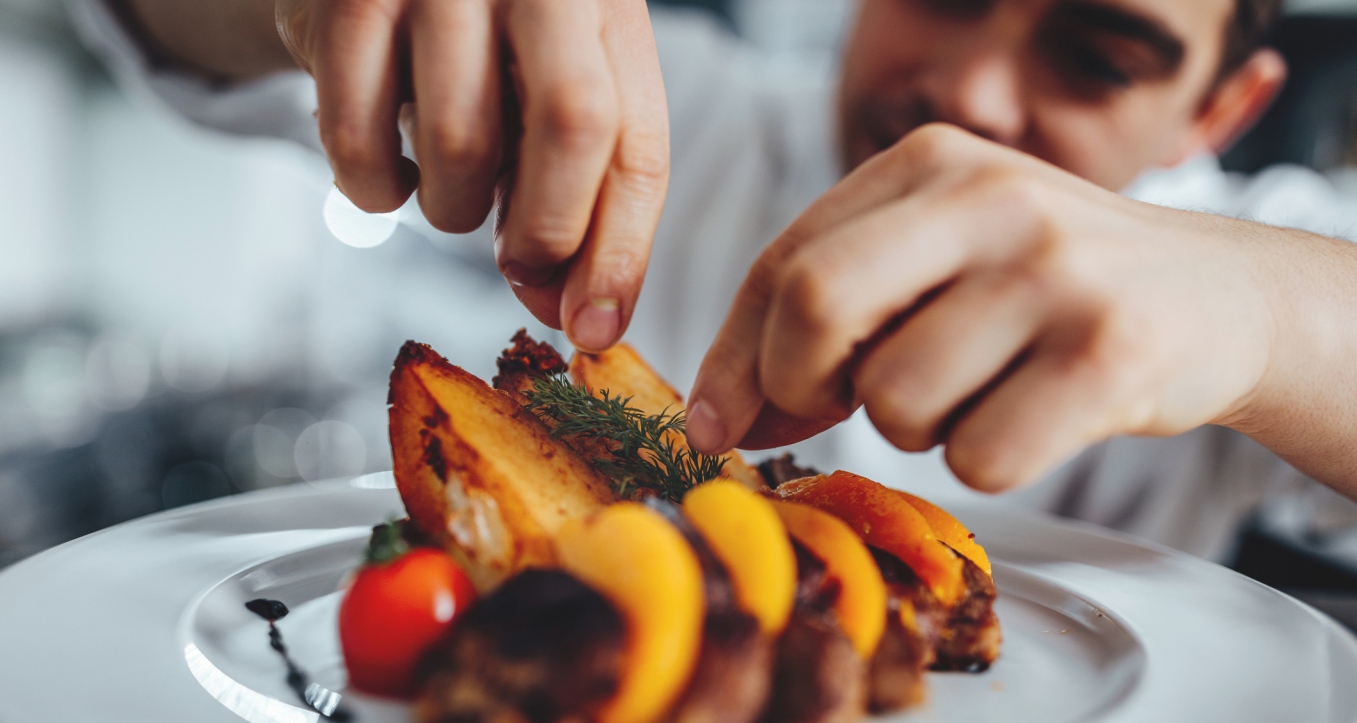
With the popularity of our culinary experiences, we wanted to delve into the different ways any keen foodie could approach a professional career in the food industry. There are multiple options for getting started: a college course, attending culinary school, becoming an apprentice at a restaurant or catering company… and of course, arming yourself with cookbooks, and becoming self-taught.
We figured a great way to garner wisdom as to Learning to Cook would be – of course! – to ask those who’ve made a success of a career in the kitchen. So herewith stories and insights from a variety of professional cooks… Plus, we asked them to recommend their favorite cookbooks, to give some easy-to-adopt ways to get chopping, frying, baking and broiling!
Abigail Hitchcock is owner & chef at Camaje Bistro, New York City. Before setting up home at Camaje, Abby worked at The Tea Box at Takashimaya in New York, at Vong in London and at the BBC’s Good Food Magazine. She has been a private chef, worked at Martha Stewart Living television and ran her own catering company.
Instagram: @camajebistro
- When did you first start to cook?
I cooked with my dad but I have to say I probably mostly ate his amazing food. Every day after he finished work, we would go shopping for dinner. We never went for one really big shop. I still cook that way today. I have a craving and I cook it! I started really cooking in college when I moved to Bristol, England and chose to live in a “self-catering flat.” I had never had to think about every meal and I discovered how much I loved the process!
- What inspired you to want to cook professionally?
When I wasn’t studying, I was cooking! It was my favorite thing to do. When I finished university, I decided I’d much rather go to culinary school than do a master’s/Ph.D in science. And as my dad pointed out, one always has to eat!
- How and where did you learn to cook?
I went to Peter Kump’s New York Cooking School, now known as the Institute of Culinary Education in New York City.
- What advice would you give to anyone wanting to learn to cook, especially professionally?
Know what you’re getting yourself into. Cooking professionally is a labor of love. This is a notoriously underpaid profession with very long hours but it can be very satisfying. I think it is worthwhile trying to find time to volunteer at a restaurant to see what it’s like, and to see if the pace is something you can keep up with. Then if you still like it, consider culinary school. School is not necessary but it accelerates the process of learning. In the States people go to culinary school more than in Europe where the tradition was typically following a series of apprenticeships.
- Is there a cookbook you love that you would recommend?
I have so many! Argh! I think for someone starting out, Mark Bittman’s How to Cook Everything is an excellent reference. I also love The Food Lab by J. Kenji Lopez-Alt. It turns on their head the techniques people have been using for centuries and will make you a better cook.
You can be a Chef for a Day, cooking a meal for your friends and loved ones with Chef Abby in her bistro kitchen. More info here.
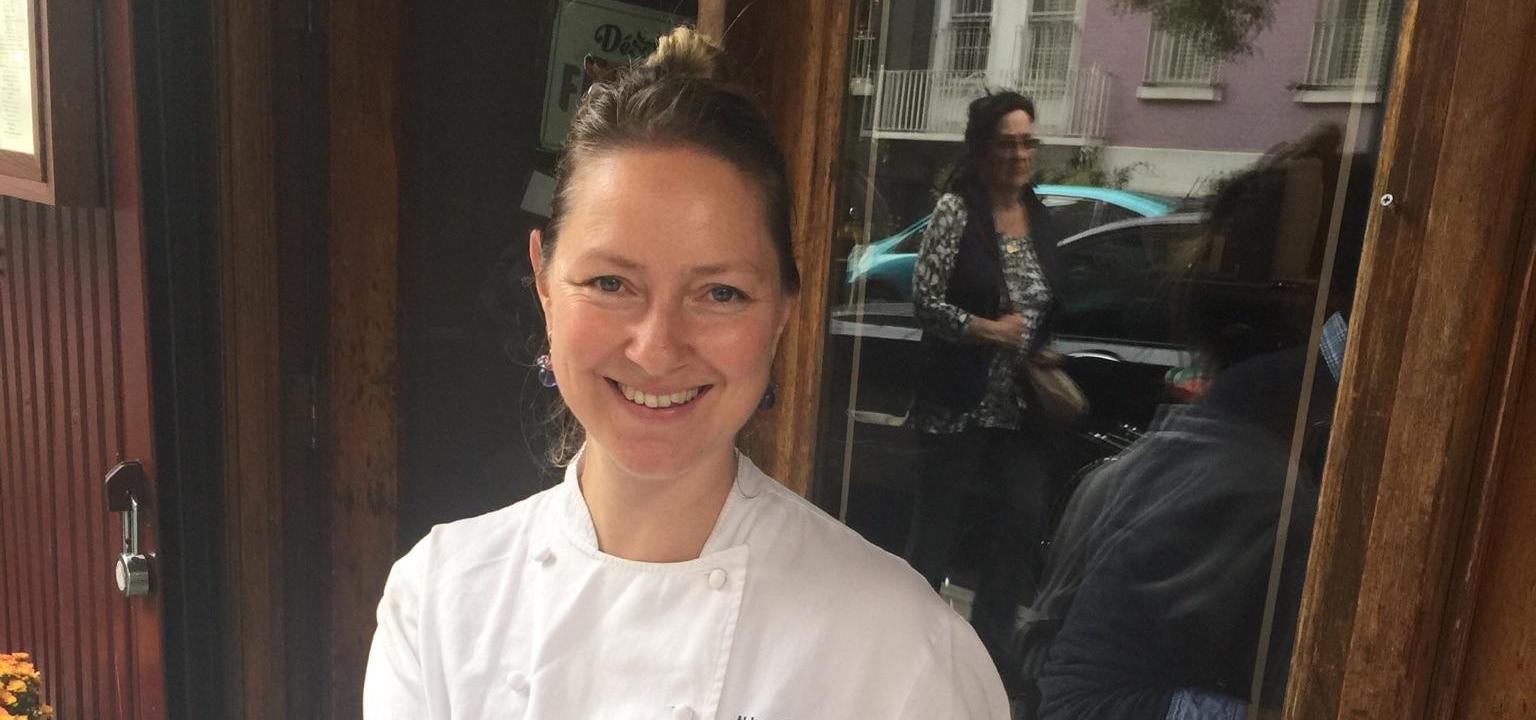
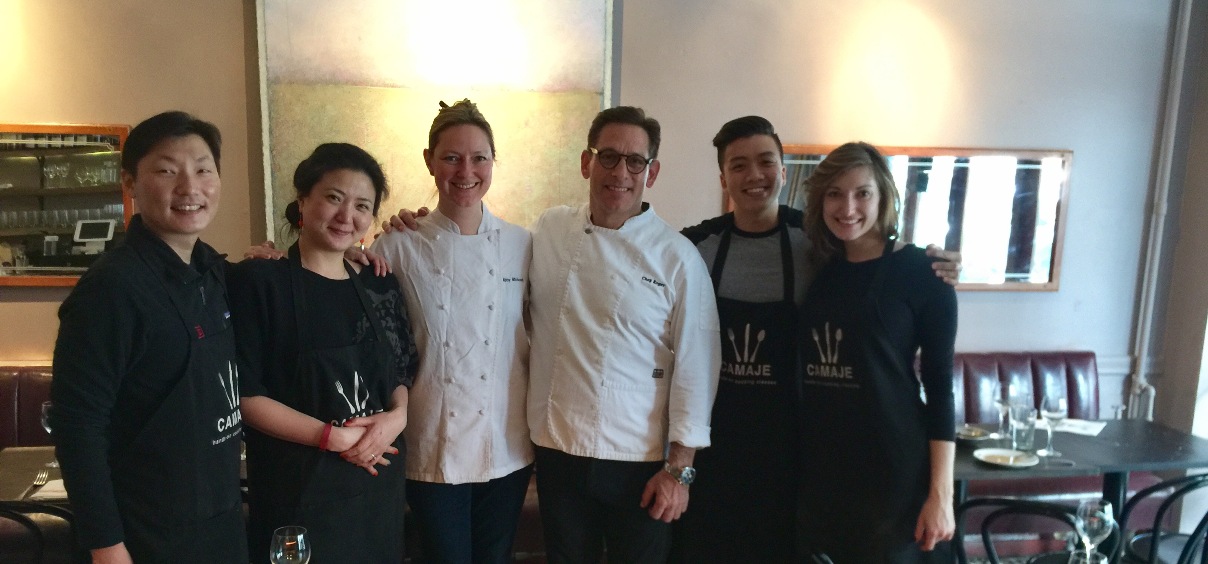
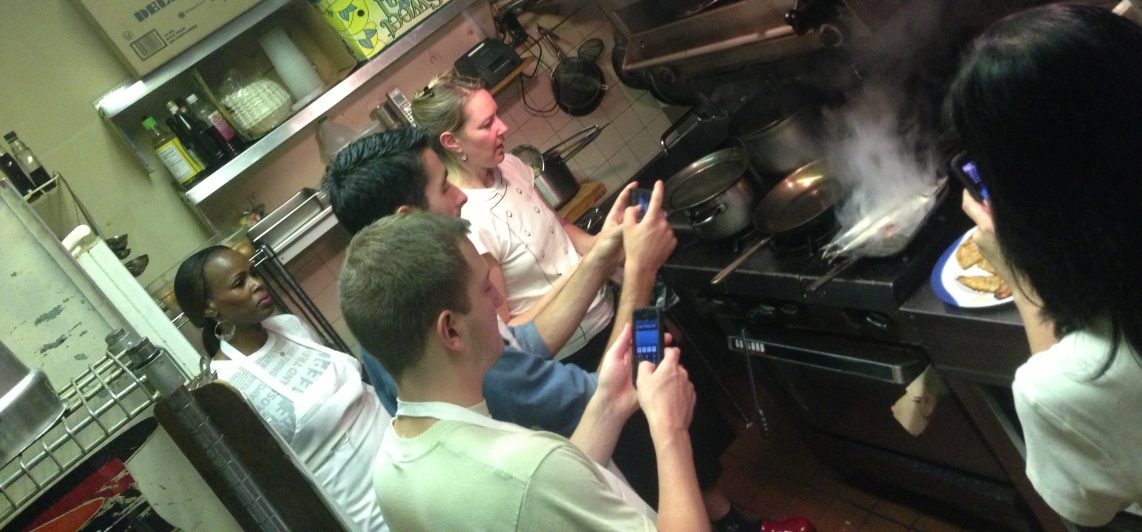
Nichola Smith is Director at Healthy Yummies, a company that provides catering for cast and crew on major Hollywood movies being shot in the UK; she works on the films’ leading cast diet plans and execution, too. Nichola also had a show on the Food Network in the UK called Red, Hot and Yummy.
Instagram: @Healthy_yummies
1) When did you first start to cook?
I grew up in a very loving and simple working class family who would grow their own produce as much as possible. And so from a very early age I would help my father and grandmother harvest and prepare the pickings. Making pickles and preserves ready for winter and most importantly respecting and using every part of the fruit and vegetables from the garden. We’d even save the potato skins to make soup – which is very tasty by the way! It was an existence where wastage was not tolerated.
2) What inspired you to want to cook professionally?
I’m always amazed at what Mother Nature produces, the colour, texture, flavour of all these amazing ingredients and how they are used in culinary practice all over the world, the concept of an on-going project, one that would never end in my lifetime was extremely attractive. On a practical level, I have always been a grafter and worked with my hands, I like to get in there, feel it and explore every angle. On a creative level, especially with social media and photography, the food will only ‘sing’ when all elements are right…. That perfect shot is magical! Nothing makes me happier than seeing faces light up with my creations.
3) How and where did you learn to cook?
I am self-taught mostly from a passion within! Added by a stint working for a well respected chain in London, which to be honest I found hugely disappointing. In my world I’d imagined professional kitchens to be very much like the film Ratatouille! In these high end restaurants most kitchen staff had worked their way up from pot wash to the grills with little passion for cooking.
With my love of the outdoors, past career in music and new found cooking skills I thought that the festival scene was the best place to start my company, it was during this period that I met the founder of street food association KERB, Petra Barran. With her and a few other street traders we started the street food scene in London, which has now blown up into something unrecognisable! One day we were spotted by a production crew organising a shoot for Paloma Faith, they thought she’d love our style and booked us. That job created 4 others and now 8 years later we are feeding 1200 people on set from 8 mobile kitchens.
4) What advice would you give to anyone wanting to learn to cook, especially professionally?
It’s long hours and utterly gruelling, you have to be prepared for that! Passion, tenacity and an eye for small details is essential. Cookery schools will teach you the basics but to be honest, the years learning at school you could be out there doing it for real and working with others that inspire you. I’m always energised by the chefs that come and work for me.
We are acutely aware of so many environmental issues now, you have to be responsible with your sourcing, packaging, waste and recycling.
5) Is there a cookbook you love that you would recommend?
Most cook books are ghost written with home economists providing the recipes that rarely work. Travel the world and play – create your own combinations to share with friends and family until you have your own style and confidence. My current inspiration comes from Vegan chef and author Julie Morris, LOVE every one of her books!
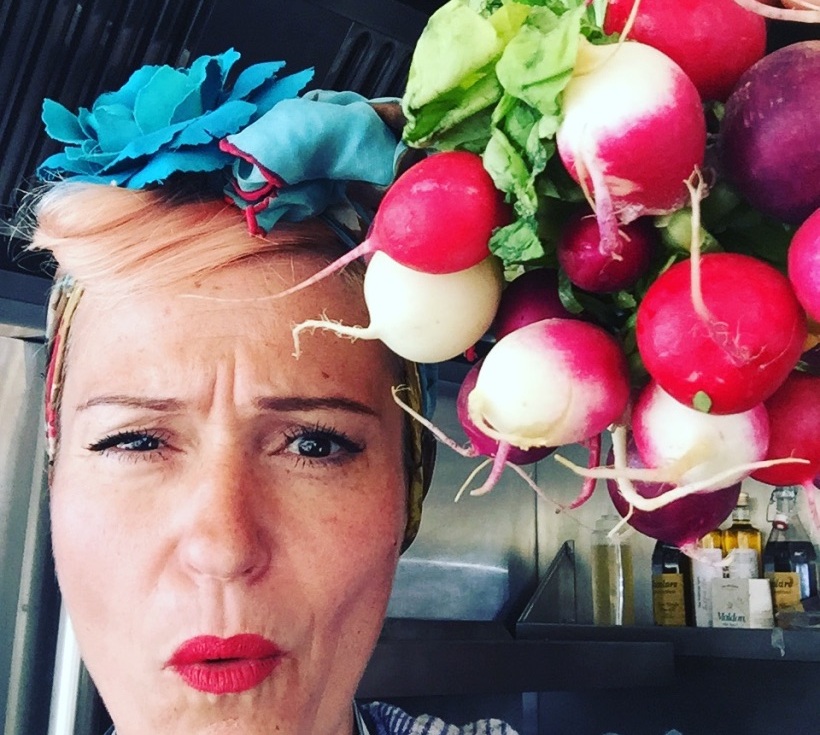
Sarita Ekya is Owner of S’MAC (Sarita’s Macaroni & Cheese) in New York City. As the name suggests, this East Village eaterie specializes in (delicious) mac ‘n’ cheese.
2) When did you first start to cook?
I can’t pinpoint exactly when I realized I enjoyed experimenting in the kitchen — especially when I started not following recipes and just creating. I think it was university-age. I am sure I am strongly influenced by my mother who is an amazing cook and does everything from scratch, no recipes.
3) What inspired you to want to cook professionally?
So, I don’t exactly cook professionally! Ha! I came up with all of the recipes at S’MAC but when I cover a shift in the kitchen I am the slowest person there!!! I have to give a shout-out to my kitchen staff and their speediness in the kitchen. But to answer your question, what inspired me to open S’MAC was the idea of a restaurant focusing solely on mac & cheese. I never thought I would be in the food business (my education and prior work experience was in mechanical engineering) but I came up with this idea and my husband and I could not let go of it and we followed through and created S’MAC.
4) How and where did you learn to cook?
Cooking has been self-taught for me. As I mentioned, my mother has been a great influence. My husband also loves to cook so it’s been fun creating together!.
5) What advice would you give to anyone wanting to learn to cook, especially professionally? Anyone who wants to cook professionally should definitely work in a kitchen first! I think the idea of cooking is very appealing to a lot of people but to do it every day, 5 days a week is very physical. Expose yourself to that lifestyle before going through any kind of formal training, then decide if that is what you would like to do. (This advice can be applied to any career, really!)
6) Is there a cookbook you love that you would recommend?
Since I tend to be ingredient driven, I don’t use cookbooks much. I will usually just do a quick search on the internet to see ways to prep a certain vegetable, etc. and then put my own spin on it.
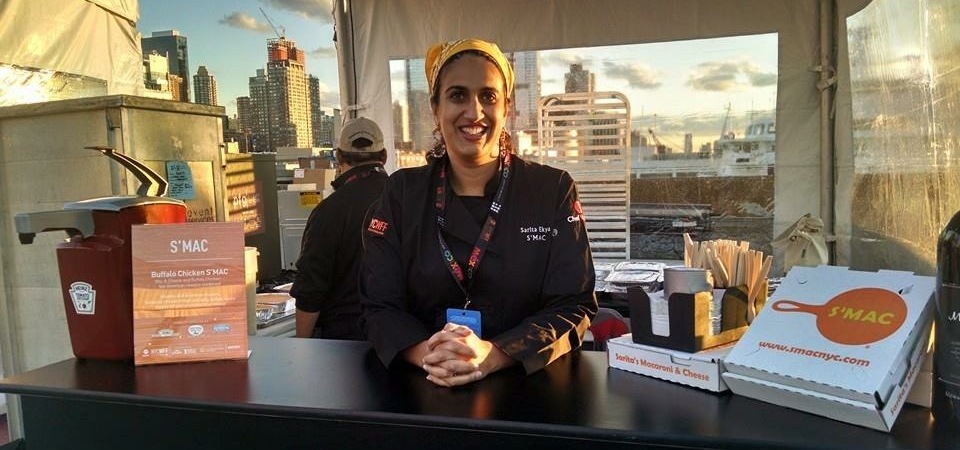
Michael Catuogno is Head Chef/Proprietor at Naked Nosh Catering in London (UK).
- When did you first start to cook?
After my family, I think it’s fair to say that food (the love of it anyway!) has been the greatest force in my life. Both my parents came from foodie backgrounds, my maternal grandfather learnt as a teenage boy in pre-revolution Russia, making his way to the kitchens of the Connaught Rooms in Covent Garden to eventually serving the Kray brothers in his East London café. My father, coming from generations of fishermen on the Island of Capri, his uncles bringing him into the family restaurants to work the tourist season. My earliest memories of cooking were rolling handmade gnocchi at my Grandma’s house in east London, my Auntie would make the dough and I would help my mum give the gnocchi their classic ridges on a fork. My first actual memory of cooking something for myself from scratch was around age 10, I came home from school one day starving hungry, and decided I would make myself Spaghetti Aglio e Olio, to this day the one dish I refuse to order in a restaurant, the easiest to make yet the easiest to get totally wrong! I learnt most basic skills at home and though I’d never actually made it with my mum, I remember just knowing what I had to do!
2) What inspired you to want to cook professionally?
I got my first job when I was 14, my parents suggested it would be a good time to get a part time job, I could do a paper or milk round or if I liked I could help at the restaurant [getting a smidge more details about which restaurant] at the weekends. Before that I’d actually asked if I could help at the restaurant – I remember going table to table asking if they would like more bread! I started by working as Kitchen Porter (NO Dishwasher!) and then graduating to cold starters and salads. In these formative years my father, who was always on the ball and respected by all his staff, made sure I wasn’t seen to be having an easier time. He also did this in part to make sure I never did this professionally, to make sure I studied hard and would work towards a “good” job and not have to suffer all the downsides of working in the hospitality industry.
I took his advice, though my studies ended aged 18 and never quite made it to uni. My first full time job was as a pensions admin clerk (snore!) but every weekend I would still work with my folks, either kitchen or front of house, I didn’t mind, I just loved the buzz of a busy restaurant. My next job (found through a customer!) I was the UK rep for an Italian brewery, selling to restaurants, ironically. It was after three years of seeing the rapid growth of the sector, by mostly non Italians selling something they didn’t really understand like I did that I thought, that’s it, I can do this better. It was at that time that my family was opening a new restaurant, complete with Sorrento wood fired oven, and so my full immersion began.
3) How and where did you learn to cook?
As you can gather from above, I learnt to cook at home, working with my parents and all the chefs that came and went over the years, each one sharing their own little tips and specialities. I feel though I really learnt to cook in 2005, aged 31, after my daughter was born. I’d been inspired truly and completely by my food hero, Anthony Bourdain, and his book Kitchen Confidential, it was then I realised that even though I was perfectly capable of working in most decent Italian kitchens, my obsession with food was so far beyond that. I took a 6 month sabbatical and spent time with my mother-in-law in Hong Kong and some time travelling around Japan. I then decided to take two steps back and work as a freelance Chef de Partie in London, really to see where I stood in a non-Italian kitchen and to really gain some hands-on knowledge. This led to a summer of events working with a caterer affiliated to Formula 1, where I spent the next four years, that I feel is where I REALLY learnt to cook.
4) What advice would you give to anyone wanting to learn to cook, especially professionally?
Apart from DON’T?! Jokes aside, I think everyone should learn to cook; getting a good, balanced, nutritious and cheap meal is probably more important to 90% of the population than the need to use a quadratic equation on a Tuesday evening when you appear to have next to nothing in the fridge. It’s a life skill, there can be pleasure in those too, it shouldn’t be something people are scared of or detached from. But, if you really want to learn to appreciate cooking, you should learn to appreciate where your ingredients come from, and what it means to get that meal on your plate, I’m not saying everyone should skin and gut a rabbit like I did growing up, but I think a lot of people would make very different life decisions if they were given the opportunity. To anyone who wants to cook professionally, do it, food plays such an important part in all societies, everywhere, and it’s thanks to those who chose to do this that make our celebrations all the more special. However, it also means you work endless hours for what initially is very little pay, you work holidays, you work when everyone else is out having fun. I’d say, before spending money on culinary school, take six months to work as a trainee in a pub kitchen or a KP in something more upmarket. It’s best to see the reality from the lowest rung, then you can make a decision fairer to yourself.
5) Is there a cookbook you love that you would recommend?
Many, though I seldom use them! Even though Italian in origin, The Silver Spoon [by Clelia D’Onofrio] covers a huge array of styles of cooking, but is more than a cookbook, it’s full of tips on preparation as well as really covering the full nose to tail cuisine that should be taught at all levels of cooking. For Brits, Queen Delia [Delia Smith] should always be in your collection, I still have the basics books from the early 00’s, it’s a fool proof guide to many basic skills, I still make her garlic and coriander roasted carrots to this day. Lastly, read Anthony Bourdain, and read his travel books that accompany his TV series. I love his work because he doesn’t approach it as a chef, but as someone who loves people, and what food makes them tick, nothing is out of bounds and to be honest, if you’re going to be a chef, you should be willing to put everything in your mouth at least once!
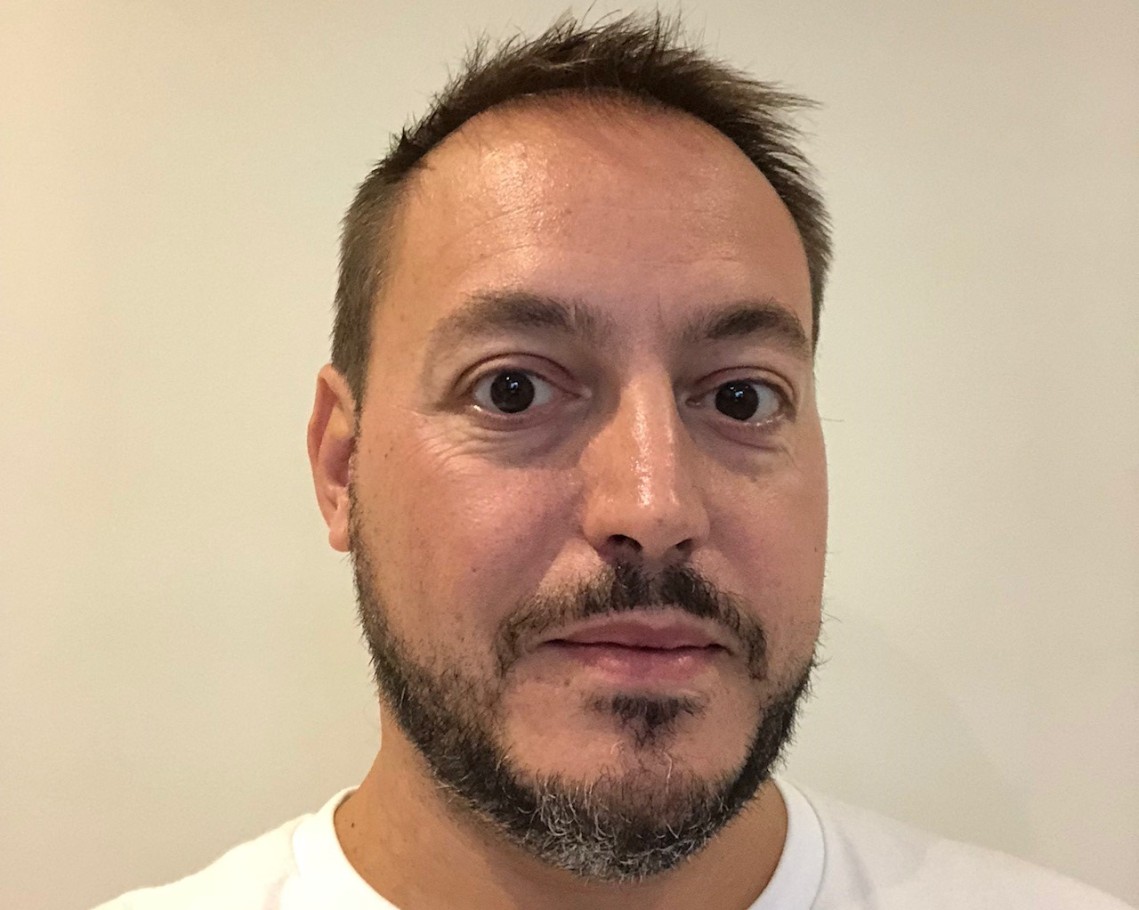
Karen Lee is a caterer and cooking teacher, rated Best in New York by New York Magazine. She is also the author of five cookbooks: Chinese Cooking for the American Kitchen, (Atheneum 1976), Chinese Cooking Secrets, (Doubleday 1983), Soups, Salads and Pastas, (Doubleday 1987), Nouvelle Chinese Cooking, (Macmillan 1987), and The Occasional Vegetarian (Warner Books 1995). Karen has received outstanding reviews in Zagat Survey and New York Magazine for her teaching and catering expertise, and has been featured in The New York Times and Harpers Bazaar. She receives 5 stars on Yelp – and for her Xperience Days classes!
Instagram: @karenleecooking or @karenleetipoftheday
1) When did you first start to cook?
I first started cooking when I was around 12, I think – scrambled eggs and bacon on Saturday. Then in college I had a Roto-Broil in my room because I could not bear the college food.
Then when around 18 or 19, I was watching Julia Child on TV and she was a motivating force and an inspiration. I was reading her book Mastering the Art of French Cooking Volume One, and trying some of her recipes.
2) What inspired you to want to cook professionally?
When I was 16 my parents sent me to live with a family in Marseille, France. The mother and grandmother did all the shopping and cooking every day. They shopped at an open air market. The food we ate went from the market to the skillet to the mouth all within a few hours. We had our main meal at 12 noon. The father came home to join the family for lunch, took a siesta and then returned to work. We ate an omelette or a piece of cheese with some bread for dinner. Nothing was kept in the refrigerator except milk, beer and butter. I had the responsibility of buying the fresh milk and bread every day. It gave me an appreciation for good, fresh food that I used as a stepping stone for the rest of my cooking days. When we ate lunch every day the family just talked about the food we were eating at that very moment. I remember there were two melons passed around the table and everyone sniffed them and then the father made the final decision of which one we would eat that day. I learned that summer how to appreciate good food. I did not do any cooking, just observing.
3) How and where did you learn to cook?
I started cooking with Madame Grace Zia Chu in 1967. I am a classically trained Chinese Chef.
I trained with Madame Chu in NYC for 5 years and became her apprentice. Some people consider the Chinese and the French Cuisines the two master cuisines of the world. I draw on this foundation and use my knowledge of both cuisines to develop recipes for my classes and catering clients. I started teaching in 1972, and have been working in the Tri-state area ever since.
4) What advice would you give to anyone wanting to learn to cook, especially professionally?
I turned a hobby into a profession when my husband left me with a child and no money. I needed to earn money and I wanted to do something I loved, and I loved to cook. I started teaching way before I was ready. I learned by making every mistake in the book and then self correcting. I started teaching Chinese cooking because that was the only kind of food I had ever cooked, and I thought it would be unique for an American to teach Chinese cooking and make it easier for an American audience to understand. Then over the years I gradually learned how to cook American, French, Italian, and Indian.
My advice is to get exposed to as many different chefs as you can by working in restaurants, or for private chefs or caterers or just a good cook that you may know that is a friend or a member of your family. Cook every day. Absorb, learn from different situations, exchange ideas, experiment.
5) Is there a cookbook you love that you would recommend?
I love The Joy of Cooking by Irma S. Rombauer. Good basic recipes to which you can add your own style. There are so many good cook books with good ideas it is hard to choose just one. Judy Rogers is my favorite writer for cook books.
Cooking Lessons with Karen are available through Xperience Days, and include three-hour group class Cooking in New York, and a Private Cooking Lesson in New York, both awarded multiple 5* reviews!
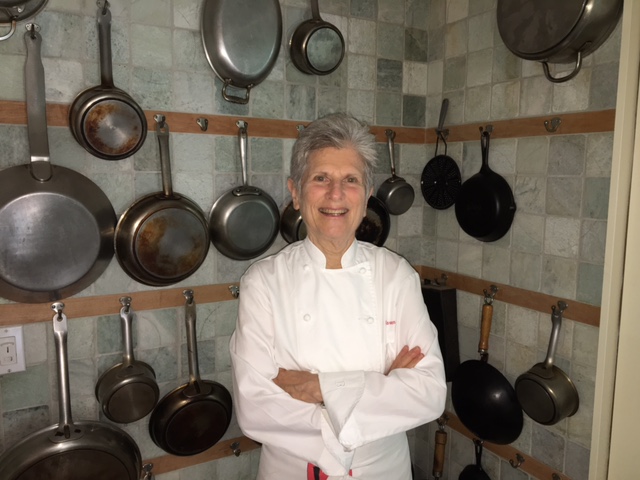
Ayesha D’Mello, is owner of Ayesha’s Kitchen, a culinary boutique specializing in Indian Cuisine. She is based in Miami, FL.
Instagram: @ayeshas_kitchen
Twitter: @ayeshaskitchen
1) When did you first start to cook?
With my dad being an anesthesiologist and mom a teacher, we had a cook in our house. Between coming home every day from school to watch her cook the more non-veg dishes, to soaking up the vegetarian recipes from my friends’ moms, I never cooked, but simply enjoyed watching. One Sunday when I was 13 yrs old, my Dad told me that we were invited to his colleague’s house for dinner. Coincidentally, his wife and my mom were out of town and my cook was off that day, I took it upon myself to surprise my dad and prepare a Meat Curry and Pilaf to take to his house. That night I learned what joy delicious food can bring. Years later when I was 17, my hosts on a trip to Belgium asked if I would cook some Indian food to raise money for their church. Knowing that it was for a good cause, I jumped at it. Quickly realizing I had over 200 mouths to feed, and only one meat curry on my cooking resume, I still went for it. With lots of help chopping and cutting, the food was a hit, selling out and leaving the helpers wiping the pots clean with bread. That’s when I realized how much I enjoyed cooking – creating memorable flavors that tug one’s heartstrings.
2) What inspired you to want to cook professionally?
Swooned by the corporate world lifestyle, Silicon Valley and worldwide work travels filled my days. It became increasingly difficult to manage my kids and work. After moving to Miami, my husband suggested I stay home with the kids. Not ready to accept that I couldn’t do it all, he said give it three months. In three weeks, not three months, I was convinced I loved staying home and taking an active role in the kid’s school and activities. Shortly thereafter a food critic from the Miami Herald contacted me to write an article about me, my culture and cuisine after hearing about my cooking. The article came out in the papers and I was inundated with phone calls and emails asking where the restaurant and cooking classes were. I was in a bit of a shock. I sat down and realized the lack of knowledge of Indian cuisine in Miami, especially with the growing popularity elsewhere. This lead to the birth of Ayesha’s Kitchen, a culinary boutique specializing in Indian Cuisine. What I discovered is not just my passion to cook but to teach others how to cook. I believe that one should take control of what goes into their body and make the right food choices.
3) How and where did you learn to cook?
With my dad an anesthesiologist and my Mom a teacher, my family is far from the culinary industry. Hopping around from my cooking at home to grandmas and friends’ moms, I learned the traditional methods of delicious Indian cooking. Growing up around such a magical and flavorful cuisine, I was intrigued by all the spices and their natural health benefits. Later, I took classes from experienced chefs in India. I have always had a keen eye to learn tips and techniques. Being able to share my knowledge with others, not only when it comes to Indian food, has fueled me to push the bounds of cooking.
4) What advice would you give to anyone wanting to learn to cook, especially professionally?
Cooking is an art, but just like any artist, practice makes a masterpiece. The more you expose yourself to the myriad spices and flavors, the greater your artistry. Watch YouTube videos, ask friends to teach you their favorite recipes and even take cooking classes. Then, take up a job at a restaurant, catering company or intern with chefs that you admire. Understand the different paces and places you can imagine a future in. Cooking is a passion and you have to love what you do, then it does not feel like work.
5) Is there a cookbook you love that you would recommend?
Growing up around the art itself, recipes came from old wrinkled papers and mumbles of the elderlies’ around me. Personally, watching someone cook is much more beneficial than simply reading a cookbook.
Learn how to cook up to six Indian dishes with Chef Ayesha in our Indian Cooking Class in Miami – yet another top rated experience!
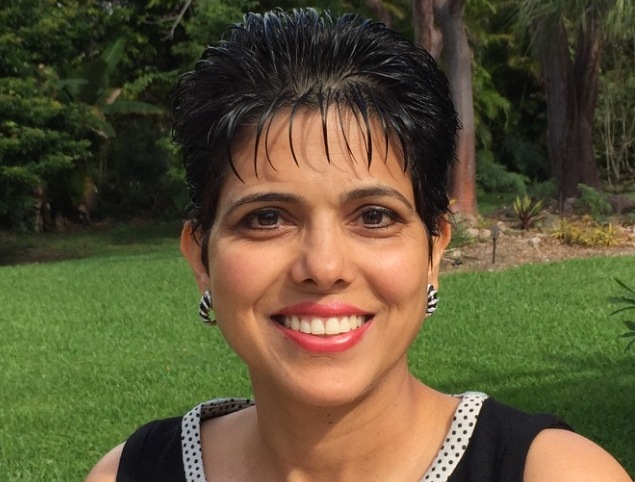
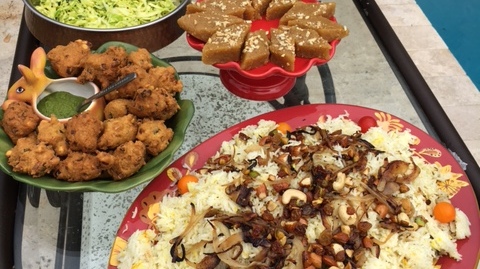
Julia Azzarello is a Food Stylist and Recipe Developer based in London, England. Her cookbook, Skinny Pasta, will be published by Kyle Books in Spring 2019.
Instagram: @firstlovethengarlic
1) When did you first start to cook?
I first started to cook when I was about 10. I took out the only cookbook (circa 1970) on the shelf from our tiny school library. I attempted to bake a cake for my parent’s anniversary. Needless to say, my brothers made fun of my large lump of a strawberry cake with Barbie pink frosting and rainbow sprinkles. It was tough as nails and lopsided, but my parents ate it lovingly. Years later in college, I cooked for my roommates all the time.
2) What inspired you to want to cook professionally?
I think what inspired me most to cook was the happiness it brings to others and yourself when you prepare a meal for them with love. It can be very relaxing as well, for example to knead your own bread and then see the final result is this glorious, golden, crunchy and tender loaf. Food evokes such memories to us all.
3) How and where did you learn to cook?
In my early twenties, I learned to cook working for various caterers and restaurants. I then went on to Peter Kump’s New York Cooking School, now known as the Institute of Culinary Education in New York City. Years later I went on to assist stylists in London to learn how to cook food for the camera as it is quite different than cooking to eat. There are lots of tricks and tweaks to give the image eye appeal.
4) What advice would you give to anyone wanting to learn to cook, especially professionally?
I would advise you to get into a professional kitchen and get experience. This will give you an idea if you truly want to be a cook. Everyone is so bedazzled by celebrity chefs and bloggers these days. It is not really a glamorous job. It requires a real love and dedication as the pay is often low when you start out in the kitchen and the hours are extremely long and tiring.
5) Is there a cookbook you’d recommend?
I have such a long list, but I’d have to say Salt, Fat, Acid, Heat Mastering the Elements of Good Cooking by Samin Nosrat. She nails what cooking is all about with 4 elements. It is all about balancing these elements in any dish you prepare. She breaks it all down into easy to understand language that isn’t filled with scientific jargon. Cooking is chemistry and she explains it beautifully and simply. Her recipes are wonderful staples for the novice or professionals. I highly recommend this.
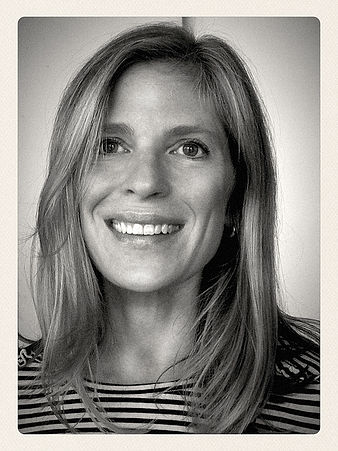
As you can see, our culinary correspondents have a variety of backgrounds, approaching their professional cooking careers in different ways – and succeeding! If you’re interested in following in their footsteps, tried and tested methods would be to look into gaining experience with restaurants or caterers, as many of our chefs here did, so you can learn on the job – and additionally, you could consider a college course, or a culinary school. Ultimately though, the key is to learn as much as you can, from observing and – of course – cooking. Plus, there are many routes in which to take your expertise; you many dream of running a restaurant, but our interviewees show how many options there are: teaching, becoming a Private Chef, a Recipe Developer, or a Food Stylist, catering for films, TV, and events… quite the buffet of ways to indulge your love of food and earn a crust. And whatever your path, we’d love to hear your stories!


No comments yet
Comment